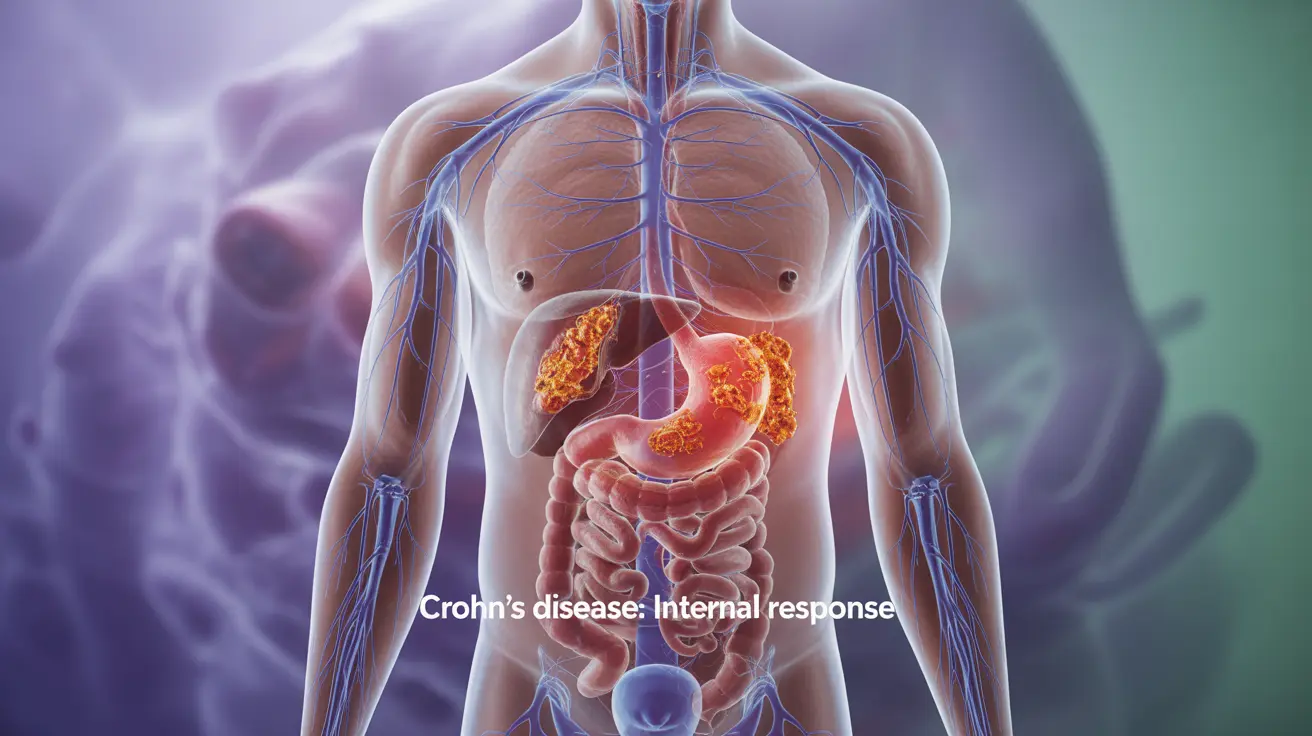Fever is a common yet concerning symptom that many people with Crohn's disease experience. As an inflammatory bowel disease (IBD), Crohn's can trigger various systemic responses in the body, including elevated temperature. Understanding the relationship between Crohn's disease and fever is crucial for proper disease management and knowing when to seek medical attention.
Whether you're newly diagnosed or have been managing Crohn's disease for years, recognizing the significance of fever can help you better monitor your condition and maintain your health. Let's explore the various aspects of fever in Crohn's disease, including its causes, associated symptoms, and treatment approaches.
The Connection Between Crohn's Disease and Fever
Fever in Crohn's disease typically occurs due to two main factors: inflammation and infection. During a flare-up, the body's inflammatory response can trigger an elevation in temperature. Additionally, the compromised digestive tract may become more susceptible to infections, which can also cause fever.
Understanding the source of your fever is crucial for appropriate treatment. Inflammatory-related fevers often coincide with other Crohn's symptoms, while infection-related fevers may present with different patterns and additional signs of illness.
Recognizing Different Types of Fever in Crohn's Disease
Inflammatory Fever
- Range from low-grade to moderate
- Occur during disease flares
- Improve with anti-inflammatory medications
- Come alongside other Crohn's symptoms
Infection-Related Fever
- Tend to be higher
- May spike suddenly
- Persist despite usual Crohn's treatments
- Accompany signs of infection like chills or severe pain
Warning Signs and When to Seek Help
- Temperature above 101°F (38.3°C)
- Fever lasting more than 24-48 hours
- Severe abdominal pain
- Signs of dehydration
- Unusual fatigue or weakness
Impact of Medications on Body Temperature
Some medications used to treat Crohn's disease can affect body temperature. Immunosuppressants may mask fever symptoms, while biologics might occasionally cause fever as a side effect. It's essential to discuss any temperature changes with your healthcare provider, especially when starting new treatments.
Managing Fever in Crohn's Disease
- Over-the-counter fever reducers (with doctor approval)
- Proper hydration
- Rest and stress reduction
- Temperature monitoring
- Following prescribed treatment plans
Frequently Asked Questions
What causes fever in Crohn's disease and how can I tell if it's from inflammation or infection?
Fever in Crohn's disease can result from either inflammation or infection. Inflammatory fevers typically occur during flare-ups and improve with anti-inflammatory medications, while infection-related fevers tend to be higher, more sudden, and may require antibiotics. The presence of other symptoms and fever patterns can help distinguish between the two causes.
When should I see a doctor if I have a fever with Crohn's disease?
Seek immediate medical attention if your fever exceeds 101°F (38.3°C), persists for more than 24-48 hours, or is accompanied by severe abdominal pain, signs of dehydration, or unusual fatigue. These could indicate a serious complication requiring prompt treatment.
Can the medications used to treat Crohn's disease cause fever as a side effect?
Yes, some Crohn's disease medications, particularly biologics, can cause fever as a side effect. Additionally, immunosuppressive medications may affect how your body responds to infection and could mask fever symptoms. Always discuss temperature changes with your healthcare provider.
What are common symptoms that accompany fever during Crohn's disease flare-ups?
During flare-ups, fever often occurs alongside abdominal pain, diarrhea, fatigue, reduced appetite, and weight loss. The combination of these symptoms can help distinguish a Crohn's flare from other causes of fever.
How is fever managed or treated in people with Crohn's disease?
Fever management in Crohn's disease depends on the underlying cause. Treatment may include over-the-counter fever reducers, increased fluid intake, rest, and adjustments to Crohn's medications. If infection is suspected, antibiotics may be necessary. Always consult your healthcare provider before starting any new treatments.




